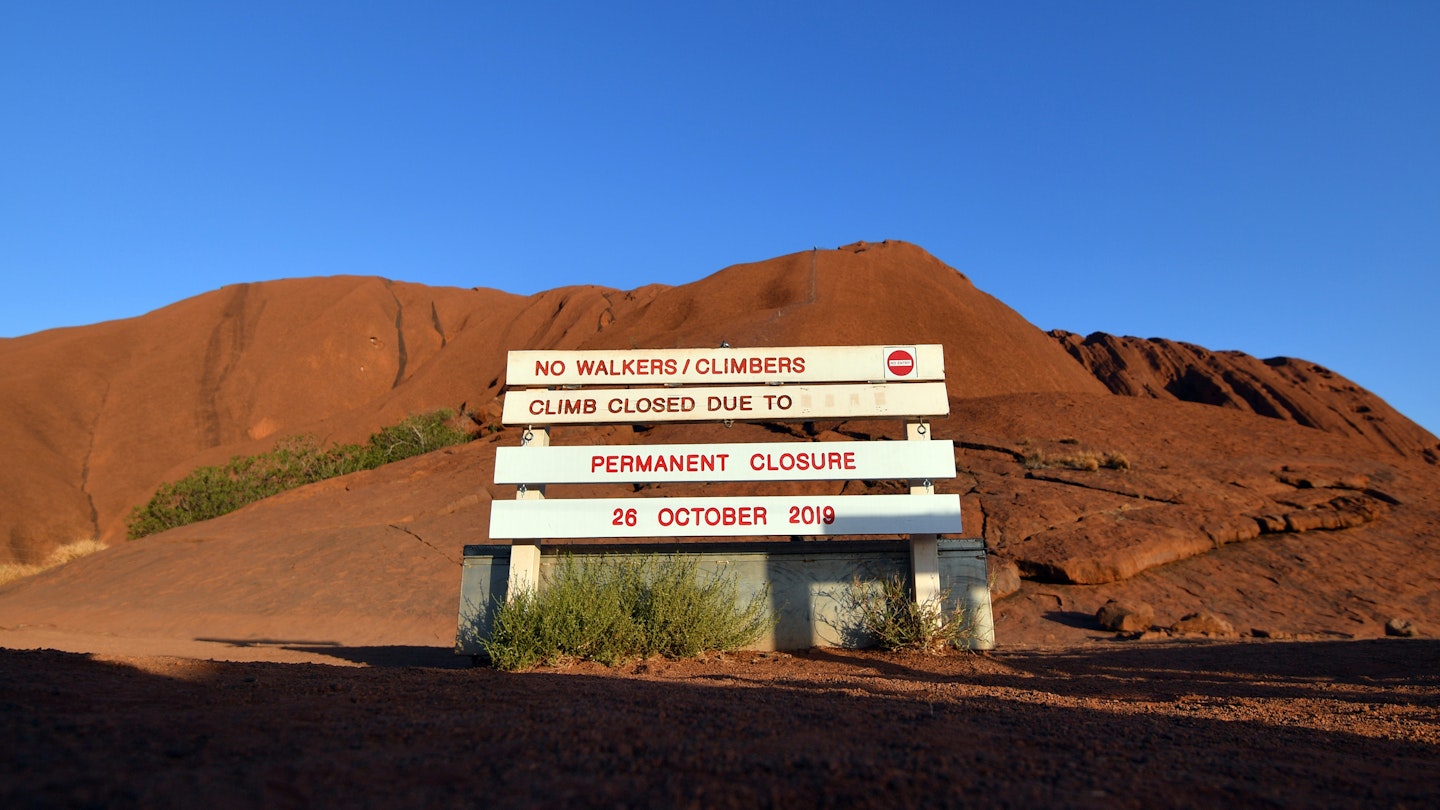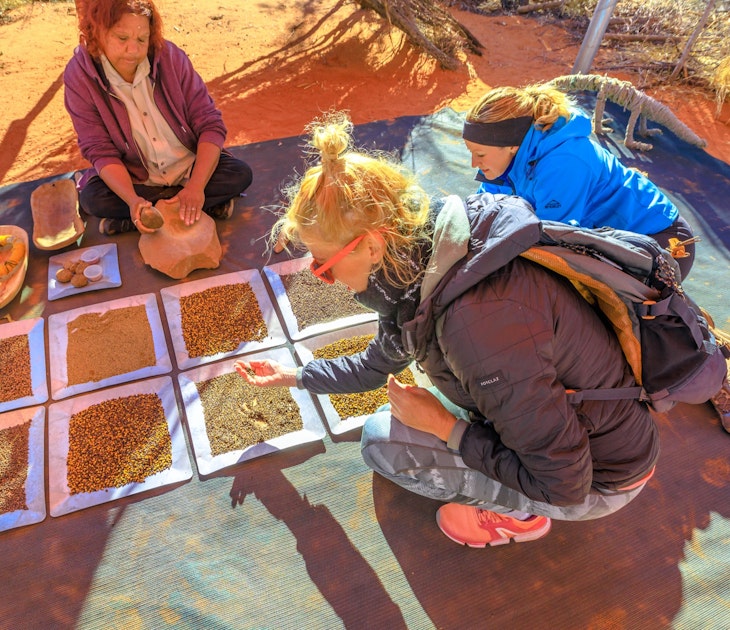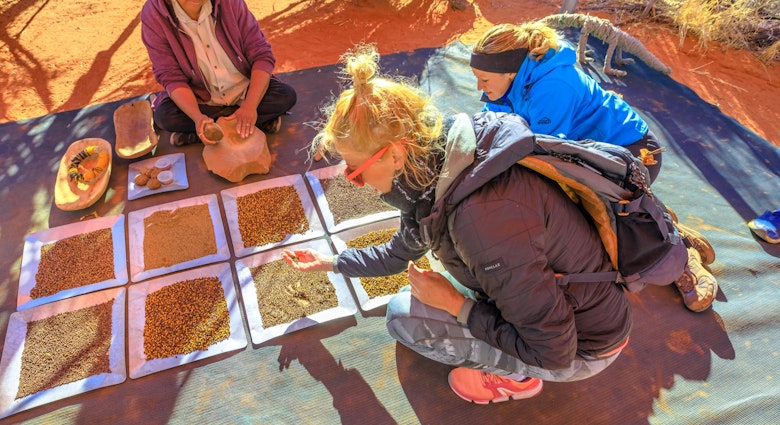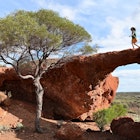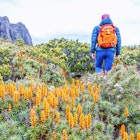Climbing the World Heritage-listed Uluru in Australia’s red centre has been banned as of 26 October, ending the stream of tourists that climbed up the sacred site in the months and days leading up to the official closure.
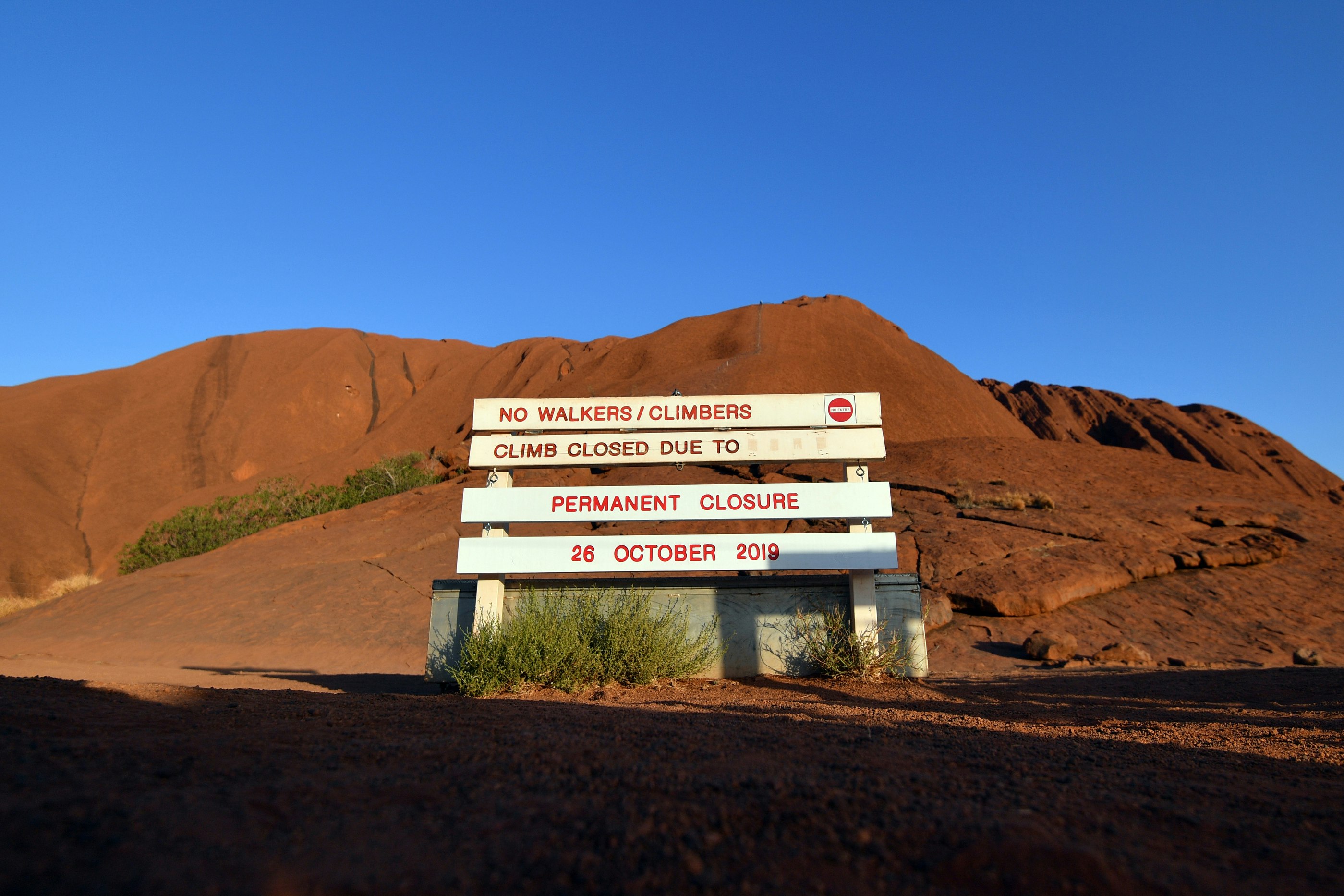
In recent days, tourists flocked to Uluru-Kata Tjuta National Park, ignoring the clearly expressed and the well-signposted wishes of the traditional owners, the Anangu people, while stirring outrage across social media. Many are calling out climbers for their lack of regard for the environmental and cultural sacredness of the site.
The date for the implementation of the ban was announced back in 2017, but many climbers continued since that time. Back in July, Marcia Langton, a respected academic and author of ‘Welcome to Country’ Australia’s best-selling introduction to Indigenous Australia, tweeted: “This is sacrilege and vandalism on a grand scale – disgusting!”, while Australian Senator Pauline Hanson called the ban ridiculous, suggesting that banning the climb would be bad for tourism. Last year, even after the closure was announced, 87% of visitors to Uluru respected the wishes of the traditional owners and didn't climb the rock.
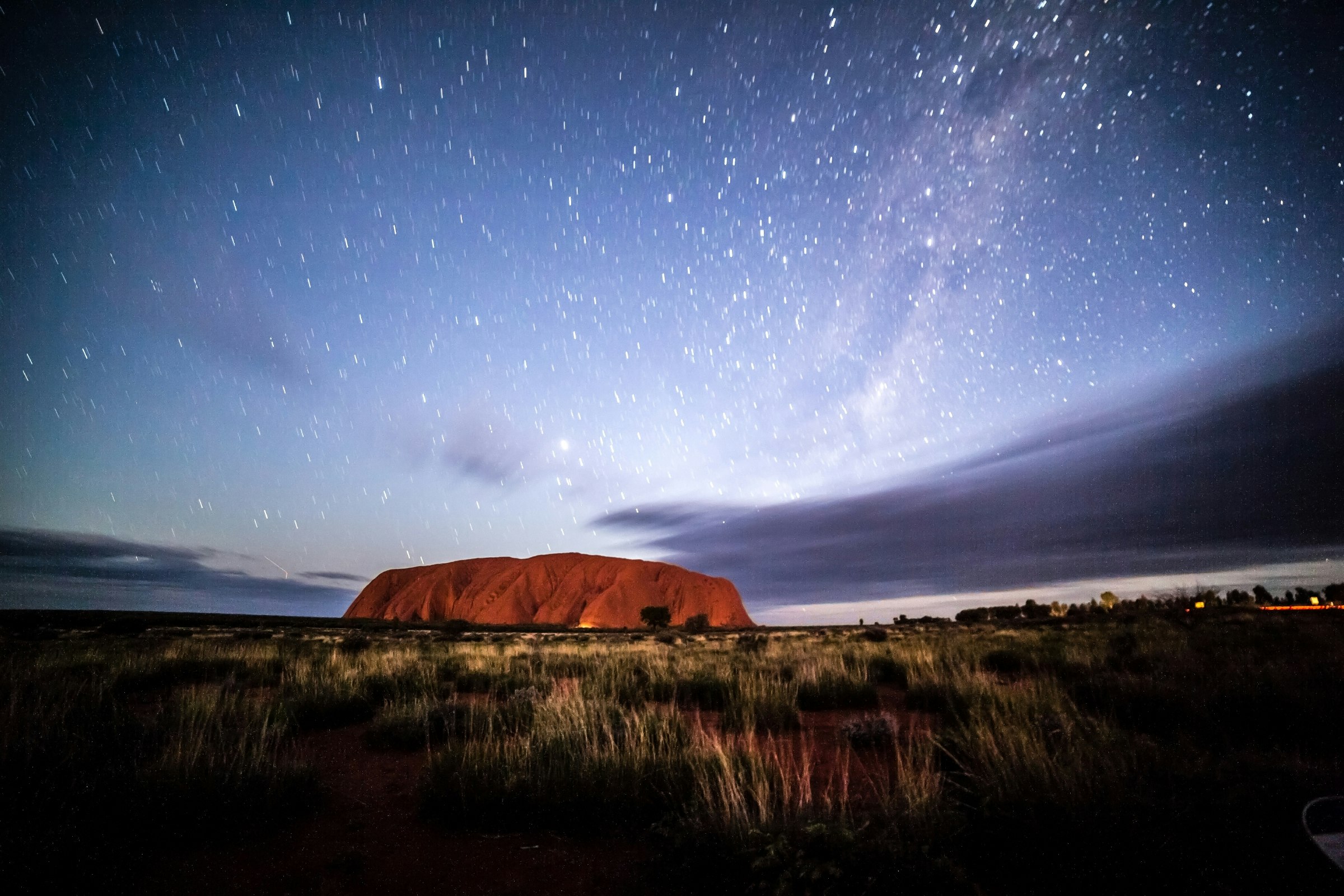
The region was already gaining popularity over the last year, a result of the innovative ways visitors can experience one of the world’s oldest landmarks and cultures, including the mesmerising art installation by British artist Bruce Munro ‘Field of Light’, exquisite dining under the stars at Sounds of Silence, as well as cycling, Aboriginal astronomy, bush tucker tours, helicopter adventures, Harley Davidson rides, and camel treks. In fact, Lonely Planet named the region, which includes Alice Springs, Kings Canyon, and the West MacDonnell Ranges as one of its top 10 places to go in 2019 partly acknowledging the high-quality accommodation and activities available, and due to the importance of this moment in October when the climb will finally closed for good.
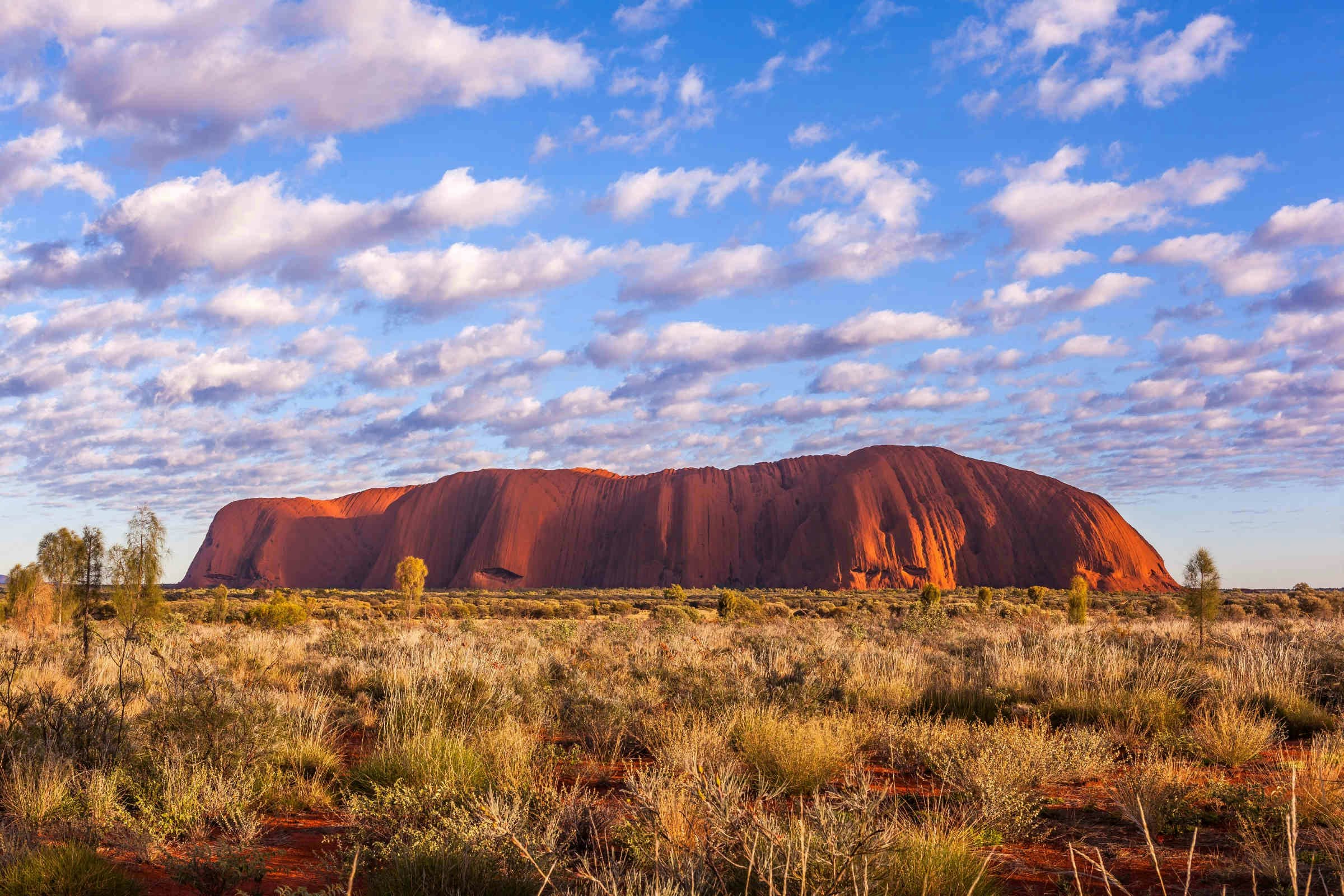
Ayers Rock Resort, run by Voyages, has experienced a resurgence in popularity with occupancy rates rising from 51% in 2012 to 86% in 2018. In July, Voyage CEO Grant Hunt commented on the sudden uptick in interest from Australians wanting to ‘conquer the rock’.
“Voyages is a strong supporter of the Traditional Owners’ decision to close the climb. I was a member of the UKTNP Board of Management at the time the decision was taken and I can tell you that the vote was unanimous. We believe strongly that the cultural values of the Traditional Owners should carry maximum weight and that the majority of the travelling public have a level of cultural maturity and understanding these days.
“We have worked extremely hard to develop new activities and experiences both at the Resort and within the park designed to make the destination attractive despite the climb closure,” said Hunt.
“We are constantly focused on the variety of ways to experience the destination other than the climb like the upcoming first-ever performance by Opera Australia at Uluru in November this year. It’s important to keep a place fresh and contemporary and we continuously challenge ourselves to evolve ideas. We have a few exciting ideas in the works but details on those will have to wait until they are fully developed.”
So if you are already heading to Uluru this winter, here’s some inspiration for things to do beyond the rock, although we highly recommend the 10km base walk as the best place to start, just after the sun rises.
This article was originally published on 16 July, 2019 and updated on 25 October, 2019.
